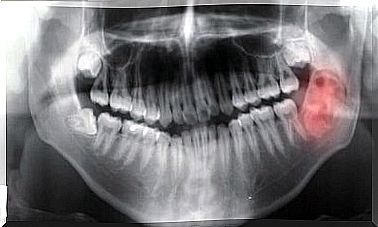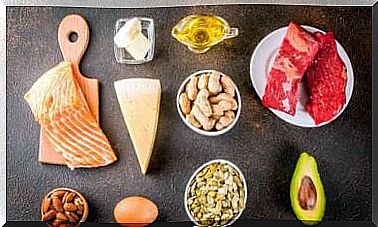How To Fight Constipation In Babies

To learn how to fight constipation in babies, you must first determine what each baby’s pattern of normal bowel movements is. It is considered normal for a baby to have a bowel movement after each meal until a day or more passes between each bowel movement. To give you an idea of how wide can be considered normal!
It all depends on how the baby is fed, what he eats, what he drinks, how active he is, how fast he digests his food and of course the inheritance left by his parents.
When it comes to a breastfed baby

For a newborn that is exclusively breastfed, there is no “normal” number of bowel movements or specific times. Stools are usually orange or yellowish and soft, even when days pass between each bowel movement.
An exclusively breastfeeding baby can stool from 4 to 5 times a day to once a week . Breast milk is a perfect blend of high quality nutrients, proteins and fats, and there are babies who leave “little” waste to be discarded.
As soon as the newborn arrives in your arms, you will get to know their habits and even how they tolerate certain foods that you consume.
Visit this article: 3 Reasons to Include Magnesium in Your Diet
When a baby feeds on powdered milk (formula)
One of the advantages of breast milk over formula is that, with breast milk, there is no chance that the baby will suffer from constipation; while formulas can be difficult to digest for your newly formed bowels.
Some ingredients in formula can cause constipation in babies. Finding the right formula for your baby can be a harrowing, stressful process that is sure to affect the newborn and further complicate matters.
Once you have determined which formula is best for your child, what is considered normal is to have a regular bowel movement once a day. However, prefer breast milk over formula. It’s the best thing you can do for your baby’s overall health.
When does solid feeding start

Usually, constipation problems appear when the baby starts eating solid foods, even if they keep breastfeeding. As long as the foods are vegetables and fruits, there will likely be no signs of constipation.
But when you include cereals, especially processed foods made from rice, the first signs of constipation appear:
- Bowel movements less frequent than your baby’s normal pattern.
- There is difficulty in evacuating.
- The stools are harder and drier.
Other Causes of Constipation in Babies
If your baby is dehydrated, the stool will be even drier and harder. Evacuation is more difficult because the system responds to dehydration by absorbing more fluid, both from the food and fluid you eat and what has already been processed in the intestine.
In addition, there are medical conditions that can cause constipation in babies, such as hypothyroidism, botulism, certain metabolic disorders and food allergies.
Less common is Hirschsprung’s disease or congenital megacolon, a disease that is diagnosed in the first few weeks of life and prevents the bowel from functioning properly.
How to relieve constipation in babies?

- Try moving it. If he’s already kitten, encourage him to do so. If he doesn’t crawl, put him on his back and bend his legs towards his chest, up and down, very gently, as if he were pedaling a bicycle.
- Massage your belly. Below the navel, about three fingers to the left, press gently and firmly until you feel a mass. Keep the pressure on for about three minutes.
- Change the formula tag. Ask your pediatrician what might be the best option for your baby.
- Although juices are not recommended for newborns, ask your doctor if you can give apple or plum juice incorporated into breast milk or formula.
- If your baby has already started on solid nutrition, avoid cooked rice and carrots. Instead, incorporate a pureed plum, peach or pear into your diet.
Do you want to know more? Read: Essential oils to calm down
Be careful
- A baby cannot use laxatives without the permission of their doctor.
- Don’t follow the popular advice of stimulating the anus with a thermometer. This can be very dangerous for your baby.
- The use of glycerin suppositories for severe constipation should be under strict medical control, as frequent use creates dependence on bowel movements.
When to alert your doctor

- When constipation does not improve despite changing the diet.
- When there are bowel movements with blood and pain.
- When the baby loses weight and doesn’t want to eat.









